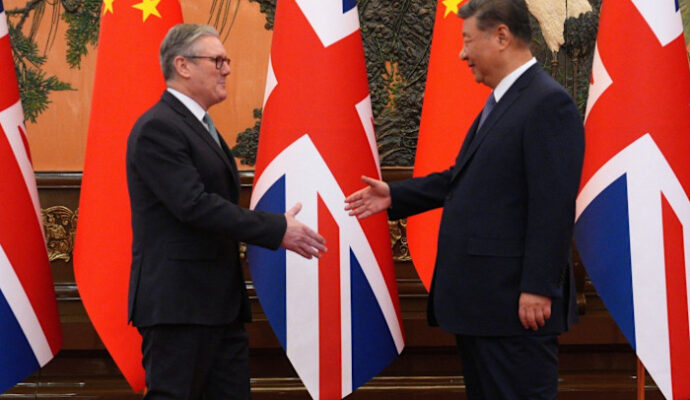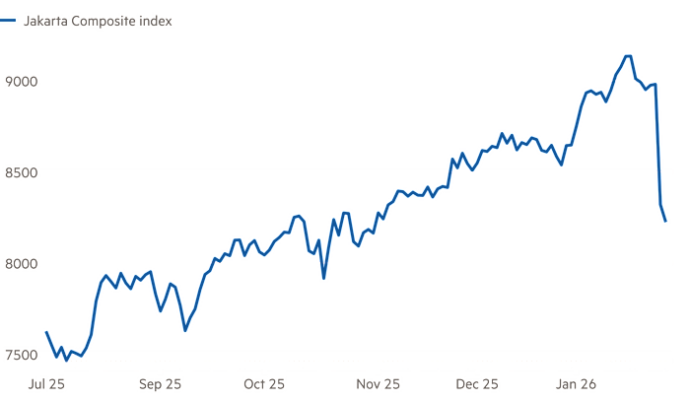Unlock the Editor’s Digest for free
Roula Khalaf, Editor of the FT, selects her favourite stories in this weekly newsletter.
Pakistan’s Supreme Court has scrapped lifetime bans on people with criminal convictions from contesting elections, opening the way for Nawaz Sharif to run for prime minister for a fourth time in elections due next month.
Sharif, 74, returned from self-imposed exile in the UK in October. He was removed as prime minister by the Supreme Court in 2017 over “dishonest practices” following revelations of unaccounted family wealth.
The ruling late on Monday came amid a bitter power struggle between Sharif’s Pakistan Muslim League Nawaz party and the Pakistan Tehreek-e-Insaf party of his arch-rival, the former prime minister and cricket star Imran Khan.
Sharif’s party welcomed the news on social media platform X, writing: “This isn’t just Nawaz Sharif’s victory. This is a victory for truth and for Pakistan’s future!!”
Khan, 71, was removed from office in a vote of no confidence in 2022 and jailed on corruption charges following a crackdown on his party, sidelining him from the electoral race. He denies the allegations.
Observers said Sharif’s swift return to the front lines of Pakistani politics presented a well-known alternative to Khan, who remains the country’s most popular politician despite being barred from contesting elections for five years under his conviction.
A general election is currently scheduled for February 8.
Ahead of his arrest, Khan had repeatedly criticised Pakistan’s army — which exerts influence on politics behind the scenes — and family political dynasties such as the Sharifs, whom he accused of trying to disqualify him in order to maintain their grip over the country. Nawaz Sharif’s brother Shehbaz briefly served as prime minister following Khan’s ousting.
“For the public, the events in Pakistan are building up to Nawaz Sharif’s return as the next prime minister,” said Huma Baqai, a Karachi-based political commentator. “People will see Sharif’s return as a result of a backroom deal.”
Nawaz Sharif first served as prime minister in 1990, with two further terms in 1997 and 2013. The Supreme Court disqualified him following revelations in the Panama Papers leak of unaccounted wealth belonging to his family, notably four residential apartments in London’s upper-class Mayfair neighbourhood.
He was found guilty of corruption in 2018, sentenced to 10 years in prison and disqualified from holding public office. A year later, he was granted bail to travel to London for medical treatment and went into self-imposed exile. The conviction was overturned shortly after his return last year.
The election is also unfolding amid a dire economic crisis, which has been exacerbated by mismanagement at the hands of successive governments. Inflation climbed to almost 30 per cent in December, and nearly 40 per cent of Pakistanis are living in poverty, according to the World Bank.
The government narrowly avoided default last year amid a balance of payments shortfall with the help of a $3bn IMF rescue programme, but the plan has required Islamabad to enact painful reforms such as raising energy tariffs.
“When people go to vote, their thinking will be built upon real-life issues,” said Umar Mumtaz, an Islamabad college student who voted for Khan in the last election in 2018. “I doubt if the [Supreme Court’s] verdict will influence popular opinion as much as fast-growing inflation.”


